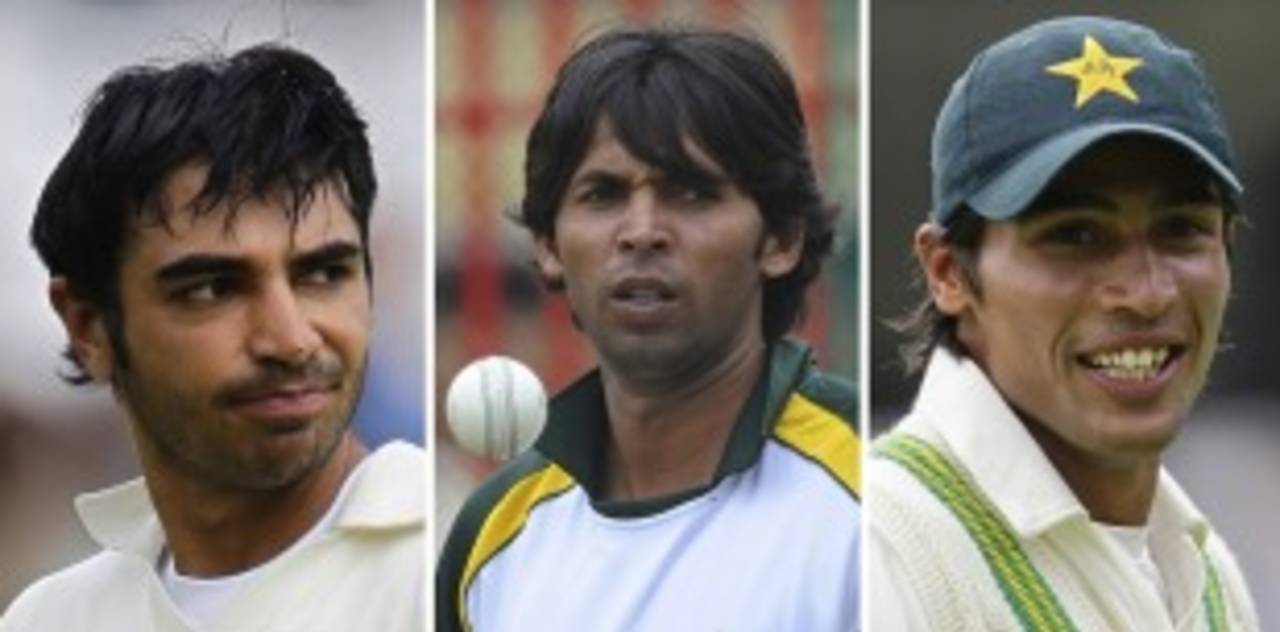The hearings into the spot-fixing scandal involving three players from Pakistan will begin from Thursday in the unlikely setting of Doha, Qatar. At stake during the hearings is the playing future of
Salman Butt,
Mohammad Asif and
Mohammad Amir as well as the reputation of the ICC as a governing body able to deal with a problem that strikes at the very heart of the game.
Michael Beloff QC, the head of the independent tribunal and chairman of the ICC's code of conduct commission, addressed the media at the Qatar Financial Centre Civil and Commercial Court, where the hearing will also take place. The briefing was a formal one, merely outlining the procedure the hearing will follow.
Beloff outlined the history of the charges against the trio, stemming from a News of the World investigation into the Lord's Test between Pakistan and England in August last year, as well giving brief profiles of the other members of the tribunal, Justice Albie Sachs from South Africa and Sharad Rao from Kenya.
The hearing will be held behind closed doors, with only the tribunal, the ICC's lawyers Jonathon Taylor and Ian Higgins, the players and their lawyers and witnesses present. The process, Beloff said, will begin with an opening statement from the ICC presenting its case against each of the three players. The players will each then be entitled to respond.
"Thereafter, the ICC will present all of the evidence that it has prepared in support of the charges it has brought," Beloff said. "That will take various forms and will include hearing from witnesses 'in person' and over the telephone."
Witnesses from the ICC are set to include representatives from
NOTW as well as
teleconferences with Shahid Afridi, the Pakistan limited overs captain, and Waqar Younis, the team coach.
The players will then be expected to present their defence, and will be open to cross-examination by the ICC's lawyers and the tribunal, before closing statements are made. Though January 11 is the last working date of the hearing, a decision could conceivably be arrived at before that. Alternatively the judgment could also be reserved till after the final date.
The players arrived in Doha on Tuesday and as they have done all along, again protested their innocence. Butt, who was captain at the time of the Test and will be represented by London-based barrister Yasin Patel, told AFP, "I have always played the game for the love of it and have never been involved in any wrongdoing.
"I am confident that I will soon be playing for my country. I have been practising all through this difficult phase of my life so that whenever I am cleared I am able to play."
Amir, who along with Asif is alleged to have bowled the deliberate, pre-planned no-balls, said, "This is the toughest phase of my life. My elders tell me that such phases come in the life of a professional, so I am bravely facing this situation and will hopefully come out of it to play for Pakistan."
Shahid Karim, Amir's lawyer, said the incident had affected Amir emotionally. "One of the mitigating factors is age and the other mitigating factor is Amir's previously unblemished record," he told AFP.
"Emotionally he is drained, he's been affected badly by it, but he's coping as best he can and above all he is very confident that he will come out of this clean."
The hearing is taking place in Doha because the third player, Asif, is
not allowed to enter the UAE after he was deported from Dubai in 2008 because of a drug-related offence.
The three were provisionally suspended by the ICC soon after the scandal emerged and though Butt and Amir contested that decision, their appeals were rejected. If found guilty, they could be banned for anywhere from five years to life.
This is the first time such a case is taking place with the ICC effectively the prosecutors. Past offenders, such as Salim Malik and Hansie Cronje, were punished by their own boards.
Osman Samiuddin is Pakistan editor of Cricinfo
